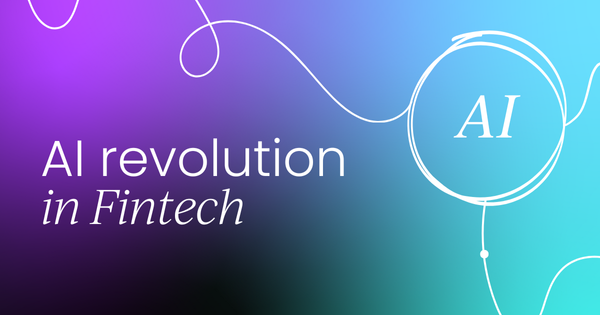The fusion of artificial intelligence (AI) and financial technology (fintech) is igniting a seismic shift that promises to redefine the future of finance.
As AI rapidly evolves, its disruptive potential in the fintech realm is becoming increasingly palpable, catalyzing a wave of innovation that will reshape customer experiences, operational efficiencies, and the very fabric of financial services.
At the heart of this revolution lies the convergence of cutting-edge AI technologies, including machine learning, deep learning, natural language processing (NLP), and computer vision.
These powerful tools are enabling fintech companies to harness the vast ocean of data at their disposal, extracting valuable insights, identifying intricate patterns, and making intelligent decisions with unprecedented speed, accuracy, and scalability.
Fraud detection and prevention: Safeguarding financial integrity
One of the most transformative applications of AI in fintech is in the realm of fraud detection and prevention. Traditional rule-based systems have long been the industry standard, but they often struggle to keep pace with the ever-evolving tactics of fraudsters. Enter AI-powered fraud detection solutions.
By leveraging advanced machine learning algorithms trained on massive datasets encompassing millions of transactions, AI systems can continuously learn and adapt, identifying even the most subtle anomalies and suspicious patterns that might indicate fraudulent activity. This not only enhances security and trust in financial systems but also streamlines processes, reducing costs and minimizing the impact of fraud on businesses and consumers alike.

Personalized financial advisory: Tailored solutions for every individual
Another domain where AI is making waves is personalized financial advisory services. Traditionally, obtaining tailored financial advice has been a privilege reserved for the wealthy, with the vast majority of individuals relying on generic, one-size-fits-all solutions. AI is democratizing this landscape.
Through the power of machine learning and natural language processing, AI-powered financial advisors can analyze an individual's financial data, investment preferences, risk tolerance, and life goals to provide highly personalized recommendations.
From optimizing investment portfolios and managing risks to budgeting and tax planning, these AI-driven solutions offer customized guidance at scale, empowering individuals to make informed financial decisions aligned with their unique circumstances.
Lending and credit scoring: Enhancing access and fairness
The realm of lending and credit scoring is also undergoing a profound transformation driven by AI. Traditional credit scoring models have long been criticized for their reliance on limited data sources and potential biases. AI offers a path toward more inclusive and equitable lending practices.
By leveraging machine learning algorithms capable of analyzing a vast array of alternative data sources, such as utility bills, rental history, and social media activity, AI-powered credit scoring models can construct more comprehensive risk profiles.
This not only improves access to credit for individuals with limited traditional credit histories but also reduces the risk of discrimination and bias, fostering greater financial inclusion.

Regulatory compliance and risk management: Navigating complexities
In the highly regulated world of finance, ensuring compliance with ever-evolving rules and regulations is a constant challenge. AI is emerging as a powerful ally in this domain, enabling fintech companies to navigate the complexities of regulatory landscapes with greater ease and efficiency.
Through the application of natural language processing and machine learning, AI systems can rapidly analyze vast troves of regulatory documents, extracting relevant information, identifying potential areas of non-compliance, and providing actionable insights to mitigate risks. This not only enhances compliance but also reduces the operational overhead and potential penalties associated with regulatory violations.
According to a recent report by renowned fintech research firm FinTech Analytics, the areas poised to benefit the most from AI integration in the near future include:
1. Automated trading and investment management
2. Regulatory compliance and risk management
3. Customer service and engagement (chatbots, virtual assistants)
4. Anti-money laundering (AML) and know-your-customer (KYC) processes
5. Fraud detection and prevention
6. Lending and credit scoring
As Dr. Emily Johnson, Chief AI Strategist at FinTech Innovators, notes:
"The convergence of AI and fintech is not merely a technological shift; it's a paradigm shift that will redefine how we interact with and experience financial services. Those who embrace this revolution early and effectively will gain a significant competitive edge in the years to come."
Forging transformative partnerships: AI meets Fintech
In the coming year, we can expect to witness several high-profile partnerships between fintech leaders and AI technology providers, accelerating the pace of innovation and shaping the future of finance.
One such rumored collaboration is between blockchain-based lending platform LendingX and the AI research powerhouse DeepMind. According to industry insiders, the two companies are in advanced talks to leverage DeepMind's cutting-edge language models and deep learning capabilities to enhance LendingX's customer interactions, streamline loan processes, and improve risk assessment.
Another potential game-changer is the reported partnership between personal finance giant Mint and OpenAI. Credible sources suggest that the two companies are collaborating to develop a conversational AI assistant capable of providing highly personalized financial advice, budgeting recommendations, and investment guidance tailored to each user's unique circumstances.
These are just the tip of the iceberg, as numerous fintech startups and established players alike are actively exploring collaborations with AI technology providers to gain a competitive edge in this rapidly evolving landscape.

Navigating the path forward: Challenges and opportunities
While the potential of AI in fintech is undeniable, its adoption is not without challenges. Addressing issues such as data privacy, algorithmic bias, and regulatory compliance will be crucial for sustainable and ethical AI implementation.
Data privacy and security are paramount concerns, as AI systems rely on vast amounts of sensitive financial data to function effectively. Robust data governance frameworks, secure data storage and transmission protocols, and strict adherence to privacy regulations like GDPR and CCPA will be essential.
Algorithmic bias is another critical challenge that must be addressed. AI models are trained on historical data, which can perpetuate existing biases and discriminatory patterns. Fintech companies must actively work to identify and mitigate these biases, ensuring that AI-driven decisions are fair, equitable, and free from discrimination.
Regulatory compliance is another area that requires careful navigation. As AI technologies continue to evolve and disrupt traditional financial processes, regulators will need to adapt and develop appropriate frameworks to govern their use. Fintech companies must proactively engage with regulatory bodies to ensure compliance and foster trust in AI-driven financial services.
Despite these challenges, the potential benefits of AI in fintech are too significant to ignore. By embracing this transformative technology responsibly and ethically, the fintech industry stands poised to unlock unprecedented levels of innovation, efficiency, and personalization, ultimately enhancing the financial well-being of individuals and businesses worldwide.
The AI revolution in fintech is well underway, and those who harness its power strategically will emerge as the leaders of the future financial landscape. As the world of finance continues to evolve, one thing is certain: the fusion of AI and fintech will be a driving force, reshaping the industry in ways we can scarcely imagine today.




 Follow us on LinkedIn
Follow us on LinkedIn






